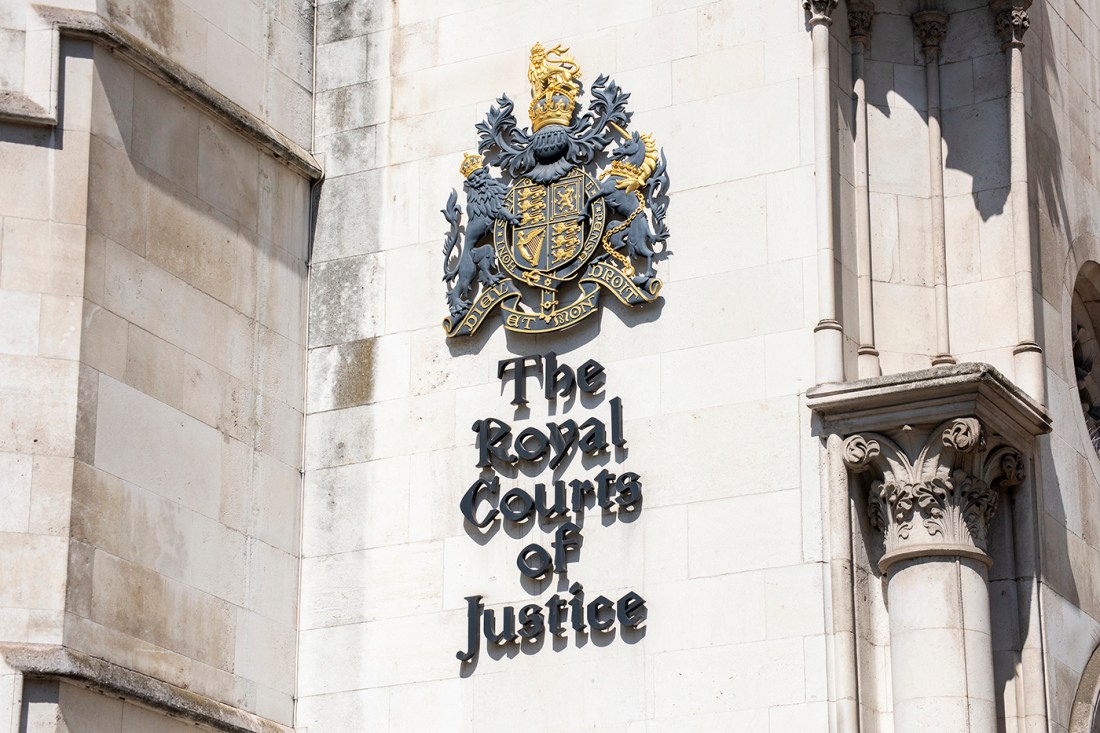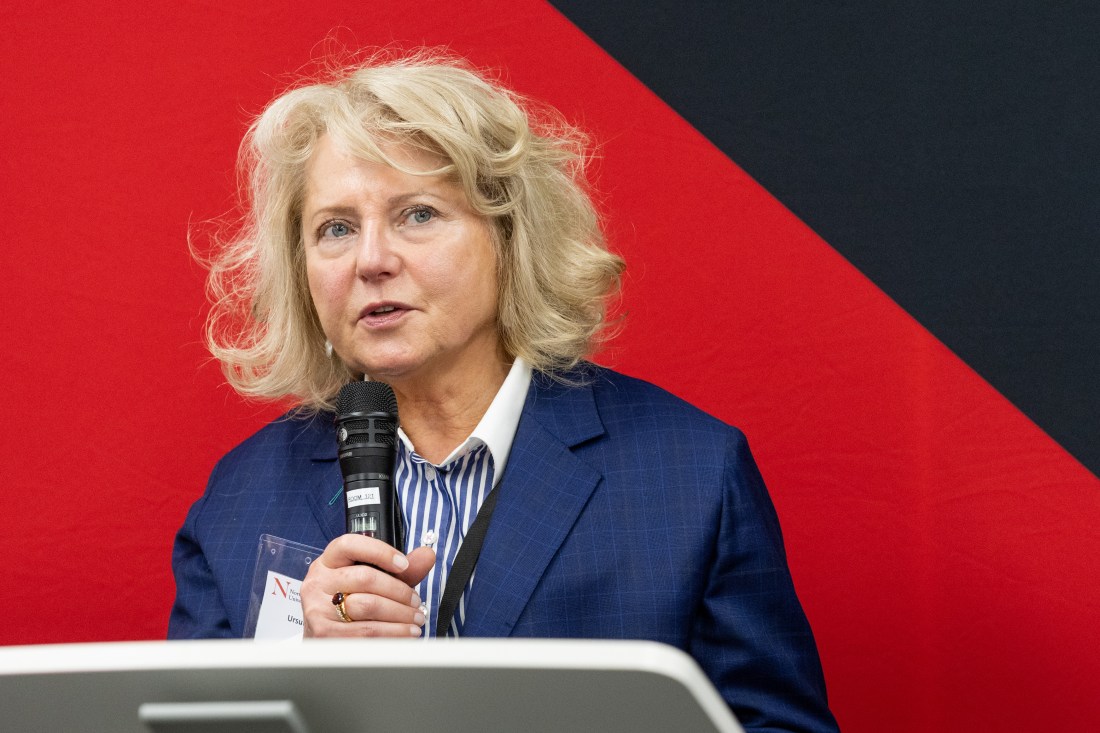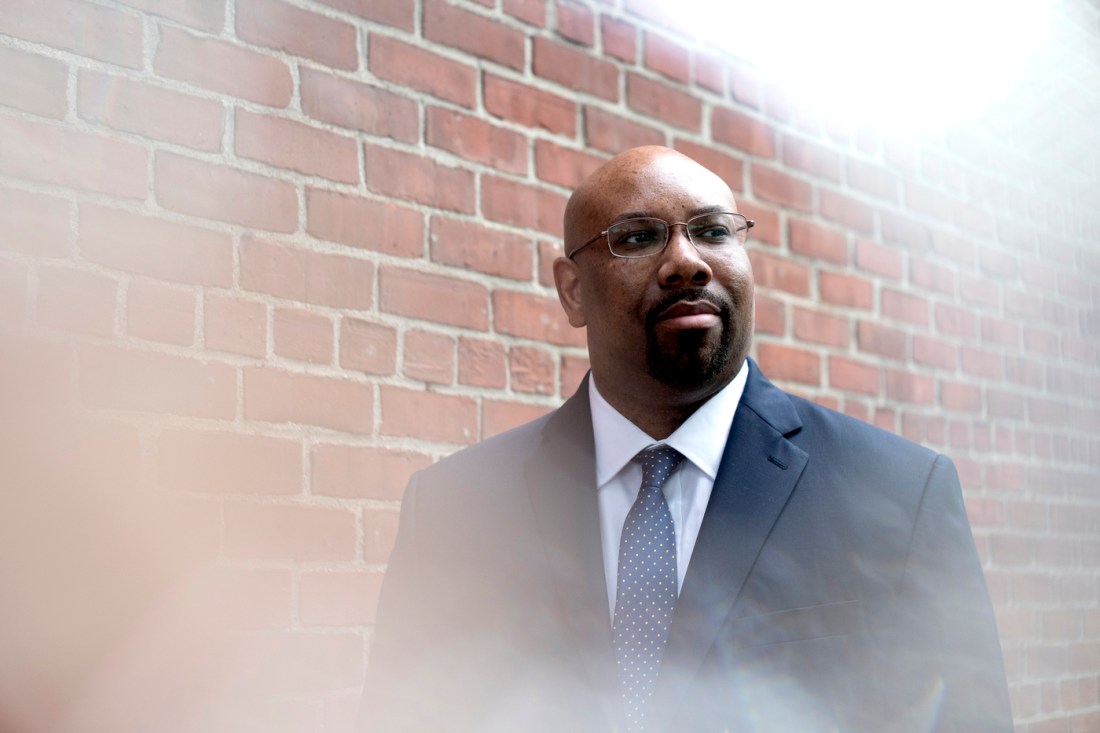What is a super injunction? And why was the press silenced over a leak of 19,000 Afghan allies?
Media law expert Ursula Smartt explains how a super injunction works while journalism academic Marcus Howard unpacks why such media restrictions are less common in the U.S.

LONDON — When the personal details of 19,000 people who supported U.K. forces in Afghanistan were accidentally leaked, defense officials feared the breach could expose them and their families to Taliban reprisals.
Rather than admit the error and reveal the £850 million ($1.14 billion) secret scheme to bring those named to safety in Britain, the U.K. government secured a gagging order on the press to prevent it being reported.
The order granted by the country’s High Court meant journalists could not mention the reporting restriction or they could have faced possible jail time.
Welcome to the world of the super injunction.
How super injunctions work
The super injunction has been a tool traditionally used by celebrities and sports stars in Britain to prevent embarrassing details about their private lives, including extramarital affairs, from being published by the media, explains Ursula Smartt, associate professor in law at Northeastern University in London.
The media law expert says that the process first begins with reputational lawyers appearing before a High Court judge in private (known as “in camera”), usually in the judge’s chambers.
“Having put at least £250,000 into court as fees for the privacy order application,” says Smartt, the lawyers will argue on behalf of their client that their privacy, or Article 8 of the European Convention of Human Rights (ECHR), which protects aspects of family life, has been breached.
“The judge will usually grant an interim injunction so that the media cannot print the story and photos they are about to publish,” she says. “The case will then go to trial, where the presiding judge listens to the argument from the claimant versus the argument advanced by the media, that freedom of expression under Article 10 ECHR should prevail.”
A gagging order unlike others
The super injunction secured by the U.K.’s Ministry of Defence (MoD) was “unusual in many respects,” Smartt says.

The first reason, according to Smartt, is that it sought privacy not just for a small cohort but for the 19,000 people — mostly Afghans who were seeking to resettle in Britain after they had supported Allied forces before the Taliban took power again in 2021 — who were deemed at risk of reprisal as a result of the leak. Taliban leaders say the list, which also contained details of British security personnel, had entered their possession.
Secondly, the injunction was in place for a long duration. The original data breach, thought to have happened when someone in the U.K. Special Forces headquarters forwarded a document not knowing it held hidden data, took place in 2022. But ministers were unaware until 2023 when it was partly shared on Facebook.
The subsequent court injunction banning reporting of the incident, first applied for by the Conservative government and renewed under the current Labour administration, was in place for almost two years.
How the the press was silenced
“Journalists cited in the superinjunction had known about the double gagging order for years,” Smartt says. “They faced the professional dilemma of not being able to talk about the order or its contents for that would amount to contempt of court, which could result in a two-year prison sentence and substantial fines both to the journalist and the media editor, as well as the publisher under the Contempt of Court Act 1981.
“By lifting the super injunction on July 15, they could finally report on the order and how the press was silenced since August 2023.”
Smartt points out that both ministers and the courts have faced criticism following reporting of the super injunction.
Criticism of the courts and government
British intelligence initially warned the leak put Afghan allies at risk of murder, torture, harassment and intimidation by the Taliban. But a recent review found the document hadn’t spread as widely as feared and no longer posed a significant threat, prompting the court to lift the super injunction.
“The press and freedom of expression proponents are saying that the super injunction should not have been granted by the courts,” adds Smartt.
“The courts have been very severely criticized in this. We’re talking about the independence of the U.K. judiciary. Did they really weigh up whether privacy and Article 8 had been breached? Or was it really actually to save the reputation of various ministers working in the MoD? The government went more than once to the judges to keep this from being reported.

“It was a massive cock up and many would argue that we have a right to know. There are questions around whether judges were too hasty to grant the injunction in the first place and whether it should have been in place for such a long time.”
Editor’s Picks
Why this wouldn’t happen in the U.S.
Such attempts to gag the press are far more rare in the U.S. due to the standing of the country’s constitution, explains Marcus Howard, an associate teaching professor at Northeastern.
“Over the years,” Howard says, “our Supreme Court has established that one of those constitutional freedoms, freedom of the press, is paramount, as well as freedom of speech. They tend to weigh very heavily towards that press freedom, so it is very rare that a court would rule against the press in that way.”
But Howard says there have been exceptions where state secrets, trade sensitivities and privacy concerns, especially those related to children, have been subject to legal reporting restrictions. There are also cases where judges will apply gagging orders to defendants or witnesses in trials, as was seen in Donald Trump’s pre-election hush-money case last year.
U.S. legal protection: prior restraint
Press rights in the U.S. were asserted by a legal concept called “prior restraint,” Howard explains, which was born out of a series of constitutional law cases.
“That basically has to do with trying to prevent the press from publishing information prior to them publishing,” he adds.
“The most famous case is regarding the so-called Pentagon Papers, when then President Richard Nixon tried to prevent the New York Times, and later the Washington Post and other media outlets, from publishing details about the Pentagon Papers, which had to do with a secret history of the Vietnam War.
“And it was that case that established this concept of prior restraint, and that the government cannot prevent the media from publishing information prior to doing so. That’s kind of set in stone here in the U.S., so any attempts to prevent the media from publishing information goes up against that landmark case that was decided in the early ‘70s.”











